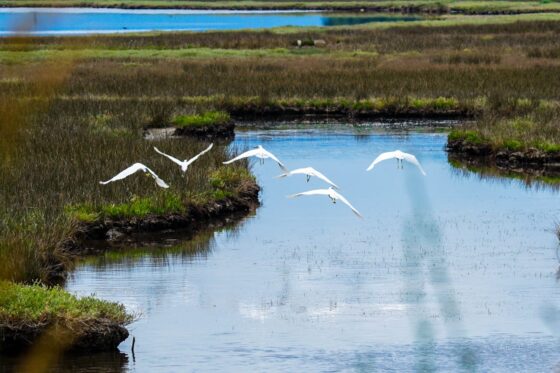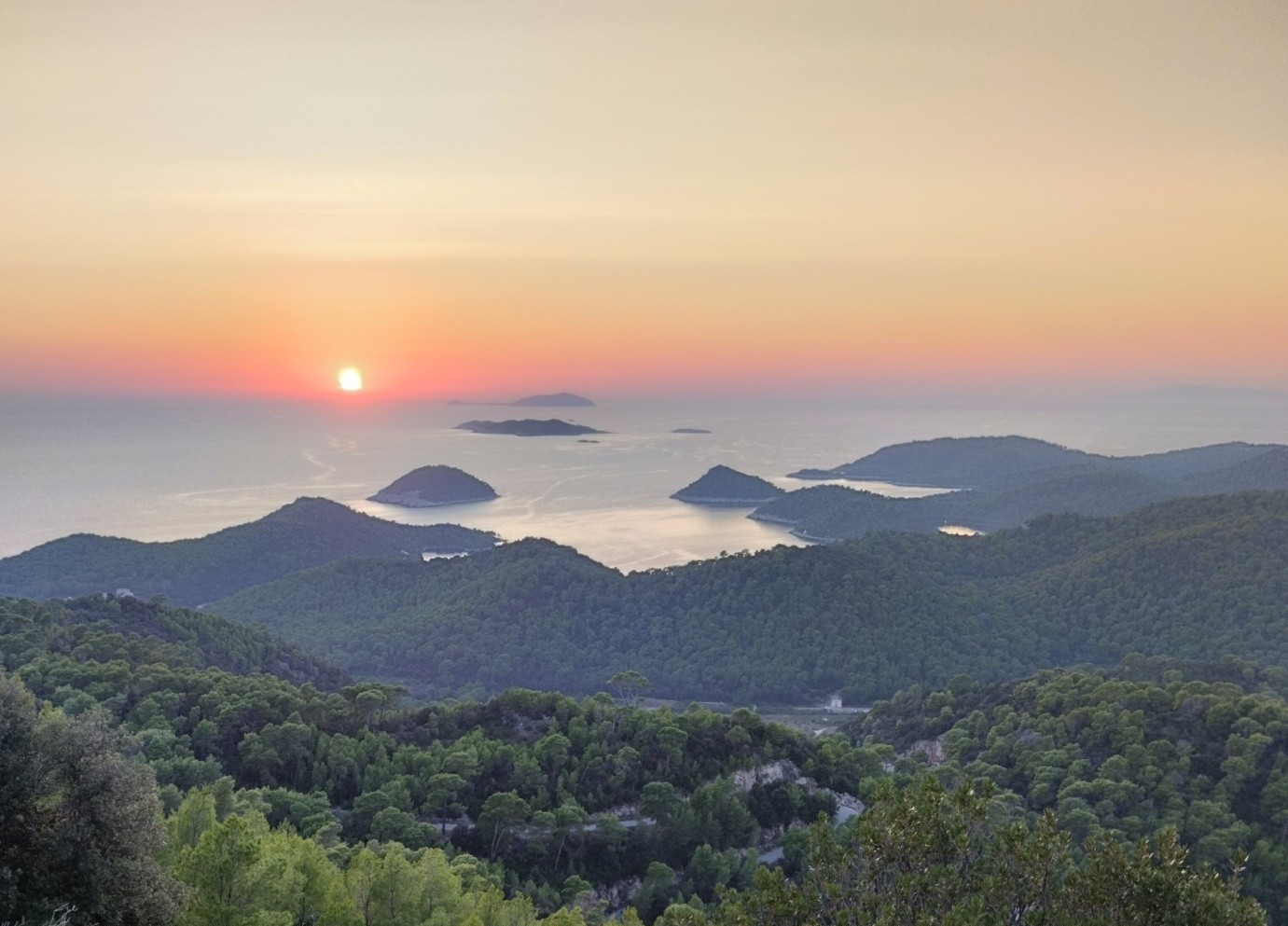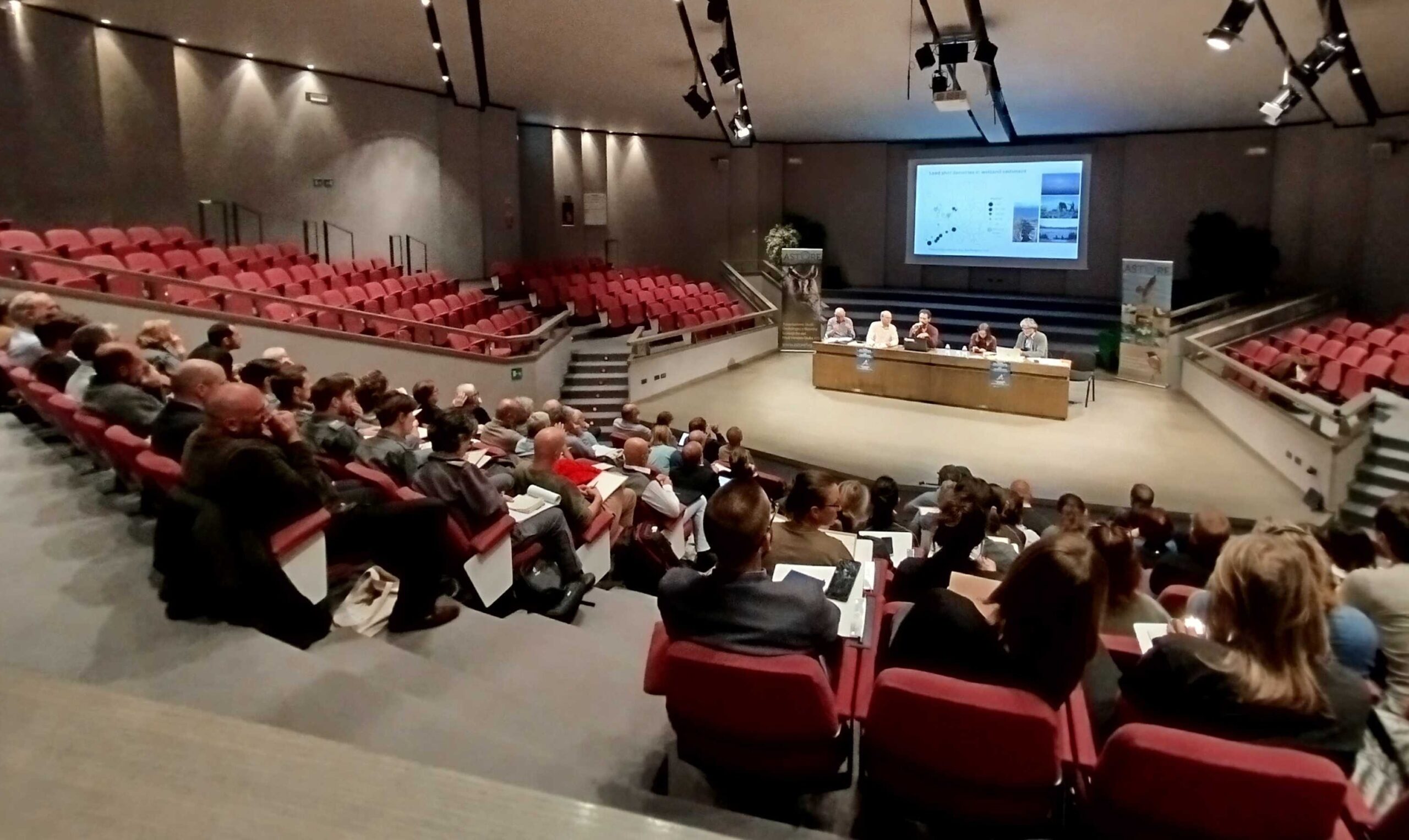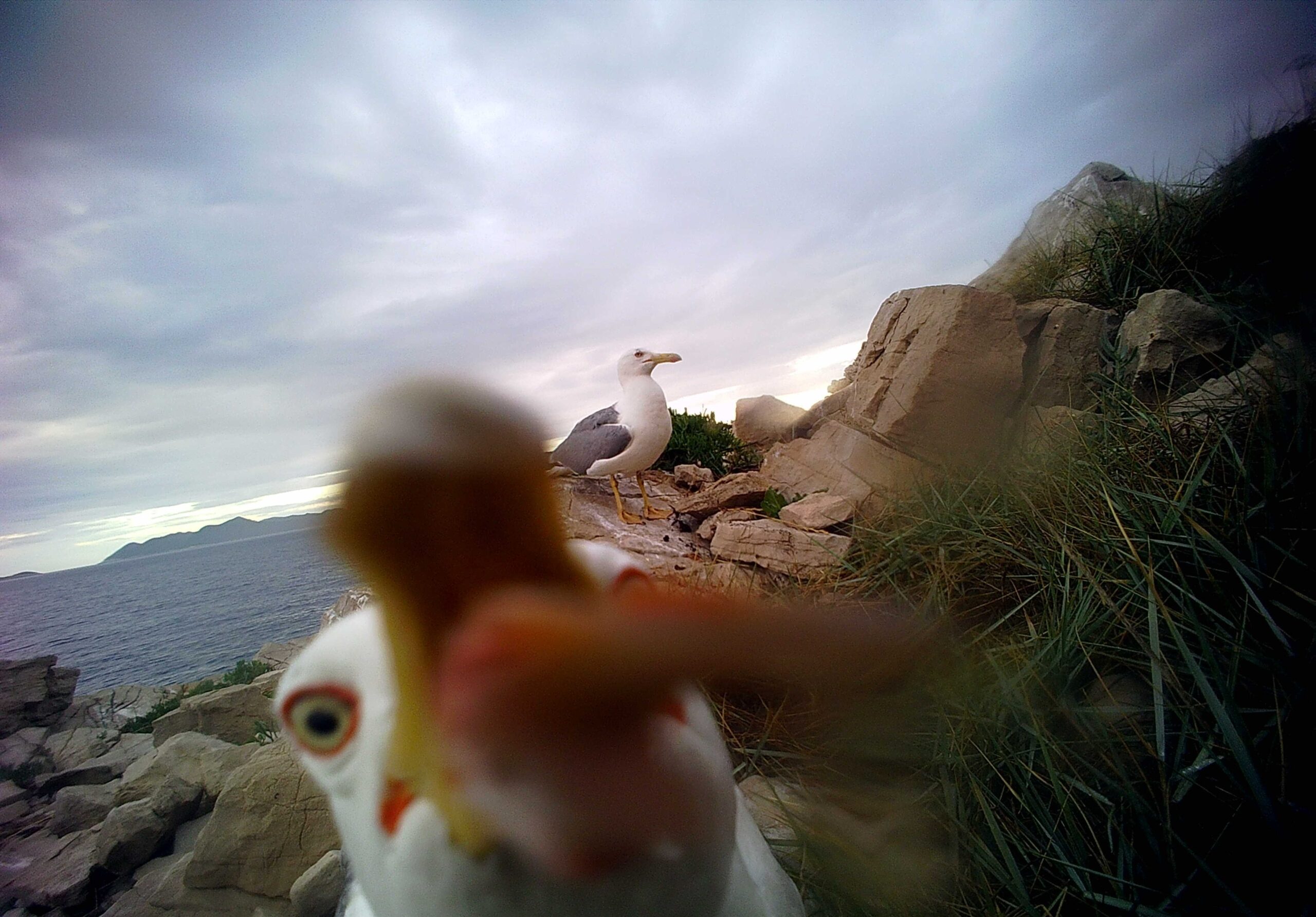The BirdLife Manifesto for the EU Parliament Elections 2024
A. Why Europeans must vote
The ecological crisis is now an inescapable fact. Catastrophic weather events are chasing each other, and new temperature and rainfall records are being set in rapid succession. The same goes for the collapse of biodiversity: From the birds and the bees to nature at sea, human activity is rapidly extinguishing the incredibly rich foundation that makes our planet both beautiful and liveable. Science is also telling us that the window of opportunity to avoid irreversible harm and damage is rapidly closing. The COVID19 pandemic showed the devastating impacts a broken relationship with nature has on individual lives, and society at large. It also made many realise how important access to nature is for our mental wellbeing. Halting human induced climate change and restoring healthy, biodiversity-rich ecosystems are the most urgent tasks to do in order to save civilisation. This requires a deep change to all economic sectors and a fair effort from everyone. The ecological transformation of society can and must go hand-in-hand with social justice. The problems we face are global. While local action is crucial, we cannot bring about the needed changes without tackling the fundamentals: The rules that govern our society, and the policies and public spending that shape our economy. The problems are too big to be solved purely at national level. The EU represents the world’s biggest economy, the biggest democratically organised society, and offers our best chance of deploying solutions at a scale that matters. It also is a key player in multilateral negotiations on both climate and nature. In addition, the total ecological footprint of the EU is high and now more than twice the biocapacity available in the region, meaning that the region’s total demand for ecological goods and services greatly exceeds the capacity of its ecosystems to produce useful biological products and absorb carbon emissions. Such a large ecological deficit is detrimental to the environment both within and outside Europe. In 2019, the EU embarked on the “European Green Deal”, a ground-breaking attempt to turn our economy away from ecological degradation and the pursuit of short-term interests, and instead towards building a resilient and fair society that can establish an equilibrium with the natural world. The European Green Deal remains an unfinished project. Many laws and policies have been undermined by those vested interests that profit from the disastrous status quo. In many cases, good European laws are poorly implemented at national level and breaking the law is far too common. While the EU has deployed huge economic resources to prop-up the economy in the face of the financial crisis and the pandemic, it has mostly failed to use this financial power to drive the needed ecological transformation. The upcoming European Parliament elections will decide the fate of the European Green Deal. We cannot afford stepping back. Europeans needs to elect politicians that will put the public good before private interests, listen to science, and show the leadership needed to tackle the crisis head on. Citizens have a unique opportunity to shape their own future. We call on all citizens to vote, and to make it count by voting for candidates that promise to deliver the concrete ecological transformation Europe needs to survive.
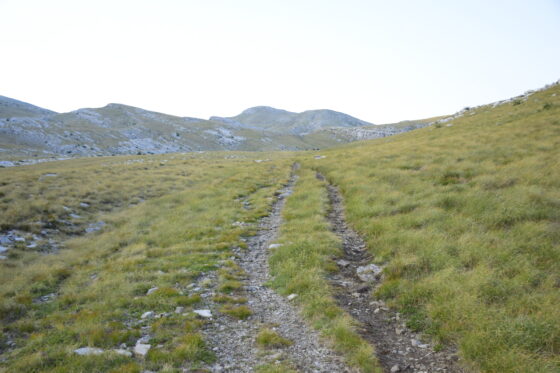
B. What BirdLife asks for
With this setting, we believe that the EU must focus on big picture priorities. The following tree pillars are the key priorities which have been identified. I. A strong follow-up to the European Green Deal II. Investing in a just transition III. Strengthening justice and democracyI. A strong follow-up to the European Green Deal
Within this pillar, BirdLife Europe identified a subset of three topics where we see the need for transforming key policies to deliver for nature, climate, and people1. Large-scale nature restoration
Saving species from extinction and preserving the last natural habitats on our continent are among the EU’s greatest successes. The EU Nature Directives, the pan-European network of protected areas Natura 2000 and the EU LIFE Programme are the reasons why cranes, flamingos, eagles, wolves, and bison have bounced back across Europe. But nature protection remains an unfinished business, due to poor law enforcement, and the reality is that strict protection does not exist. Attempts to deregulate nature conservation are constantly promoted by powerful lobbies and must be resisted. But protecting what’s left, while it remains the first priority, is no longer enough. Science shows that most of our natural habitats are now too damaged, too small, and too fragmented, as well as either poorly managed or just managed on paper,to be able to maintain healthy wildlife populations in the long-term. But with a major restoration effort, Europe can still bring back the nature that has been lost. This is what the new EU Nature Restoration Law is trying to do and a target to restore nature has been included in the new Global Biodiversity Framework. A large-scale effort to restore nature is one of our best solutions to the climate change challenge. Natural forests, peat bogs, and marine habitats like kelp forests and seagrass beds can store vast amounts of carbon – helping us stabilise the climate. Wetlands can absorb water during floods and give it back slowly during droughts, helping us survive extreme weather events. Coastal dunes and salt marshes can protect us from rising sea levels. Nature ensures that crops get pollinated. Natural habitats in and around cities can improve air quality, reduce heat islands, and improve mental well-being. Nature is our biggest ally. Let us bring it back!2. Nature-positive transformation of our energy system
The fight against climate change is a race against the clock. The survival of our civilisation, and that of most living species, is not compatible with the continued use of fossil fuels. Science has been unanimous on this topic for decades. The procrastination of the energy transition and our dependency on fossil fuel has been intensively promoted by fossil fuels lobbies through disinformation and corruption, and is already costing lives. Not only are hundreds of thousands of citizens killed by pollution and extreme weather caused by the climate crisis, but fossil fuels revenues are actively feeding totalitarian regimes, wars, and human right abuses. This cannot continue. We must reduce our global ecological footprint: use less energy, use it better and more equitably, and ensure that the energy used is genuinely renewable, and has been produced mainly through wind and solar power. This transformation requires a huge investment in research and infrastructures, from housing renewal, and electricity grid upgrades, to new wind and solar generation plants, to ensure environmentally safe production processes. Swiftly scaling-up renewable energy capacity has become more urgent than ever. Without good planning and nature positive design, such developments can add further pressure on already beleaguered species and habitats. If administrative bottlenecks are not tackled, citizens and communities are not involved, and environmental safeguards are not maintained, we will lose the race against the climate crisis. False solutions such as burning wood and food, or new hydropower can be detrimental to both the climate and biodiversity. Energy transformation and nature conservation cannot be seen as rivals. They go hand-in-hand. The EU must decarbonise its economy while restoring nature. If we ensure a nature-positive transformation of our energy system, it will be an historical opportunity to address the current situation and improve biodiversity at the same time as reaching climate targets. With pragmatism, science, innovation, and joined-up thinking at European level, we can rise up to this challenge.3. Transformation to a sustainable food and land-use system
Much of the impact humans have on nature is down to the way the lands and seas are used to produce food, and extract materials such as wood and fibres or build impacting infrastructure such as ports and airports. Agriculture intensification and expansion, as well as fishing, are well recognised as the most significant causes of biodiversity loss on both land and at sea. Current intensive agriculture and fishing practices, often actively incentivised by public policies, are leading to soil degradation, the overuse of pesticides, water and air pollution, and the overexploitation of water and wildlife. They are also heavily dependent on fossil fuels and the mining of nutrients. Aside from the annihilation of wildlife and major impacts on citizens such as air pollution and floods, these practices also put into question EU food security in the long-run. Climate disruption is bringing ever more common crop failure, helping the spread of crop pests, and is changing the distribution of marine species and their food. Working with, rather than against, nature is the only solution to support our population into the future. Farmers, fishers, forest owners and rural/coastal communities need support in joining the ecological transformation. Unfortunately, the EU’s Common Agricultural Policy, the Common Fisheries Policy and a host of other policies are still locking farmers and fishers into an untenable status quo. This must urgently change. The shift to nature positive and climate resilient farming and forestry cannot happen without rethinking consumption. Meat and dairy consumption are extremely inefficient in terms of land-use and are currently at levels that are neither healthy nor environmentally compatible. The same holds for the current methods of harvesting the seas, which not only put marine species at risk of extinction but also undermine the ocean’s ability to deliver critical ecosystem services such as storing carbon. Wood is largely wasted on burning with ever intensifying logging reducing natural forests into lifeless and climate vulnerable monocultures. The EU must continue down the road traced by its Farm to Fork Strategy and help consumers, industry, and primary producers reinvent a food system that is fair to people and compatible with nature.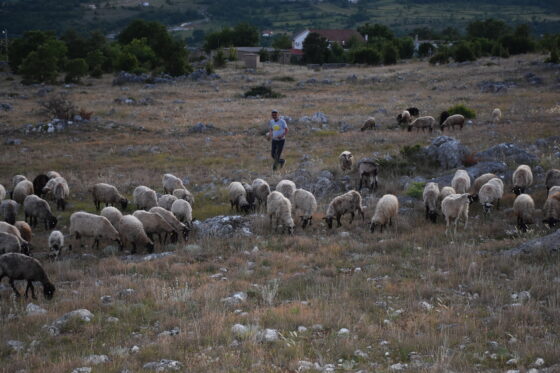
II. Investing in a just transition
The EU has a huge potential for positive transformational change. To deliver on the promises made to citizens and support the required changes, one of the big obstacles BirdLife identified is the EU’s economic and financial system, which is not delivering for neither people nor the planet. We have identified a subset of two topics under this pillar.1. Mobilising public investments
The financial crisis, followed by the COVID19 pandemic have proven the need for strong EU investments to allow for large-scale responses to continent-wide crises. Unfortunately, much of EU spending is still being channelled by national authorities into old-fashioned business-as-usual projects and subsidies that often make the ecological crisis worse. The Common Agricultural Policy, of which over a third of the total EU budget still goes into, mostly locks farmers into disastrous status quo rather than helping them change. Too much of the EU’s emergency recovery funds were mopped up by a handful of well-connected, large industry players, and channelled into environmentally harmful infrastructure instead of being spent in line with the European Green Deal. The next European Parliament and European Commission must drive a major fundamental overhaul of EU spending and support the leverage of sustainable finance initiatives. All spending that harms biodiversity and fuels the climate crisis must be stopped. Dedicated, substantial funds must be deployed to fund nature restoration, nature-based solutions, the energy transition, climate adaptation and to ensure a just transition to regions and sectors such as farming, fishing and land-use, with the requirement to deploy rapid, fundamental changes. The quality of spending must become paramount as strict “conditio sine qua non”, with independent and transparent monitoring of actual results. National authorities must be made fully accountable for achieving the objectives which the funding is allocated towards. Corruption, cronyism and the use of EU funds to buy political support must be eradicated.2. Not forgetting about the just transition
The transformation to a carbon neutral, nature positive society cannot be separated from an effort to guarantee a dignified, safe, and healthy life to all citizens. Negative environmental impacts are most often generated by the richer part of society, while the negative consequences are mostly felt by the poor and vulnerable. The ecological transformation is inherently a matter of social justice. Many of the needed changes, from consuming better food, and restoring nature, to embracing clean technologies come with an added cost to the individual or the community. This is often used as an argument against change by those who profit from the current situation. We must reject this logic and instead work to elaborate inclusive policies that combine nature restoration and the deployment of clean technologies with the creation of jobs and livelihoods, improvements in quality of life, and protection of those who are the most vulnerable. Nature restoration can be a powerful tool for the revitalisation of rural areas that suffer from economic and demographic decline. The same holds true for the transformation of the food and land-use system and the energy system. If done in a nature-positive and people-centric way, local communities will profit. There can be no social wellbeing on a dead planet.III. Strengthening justice and democracy
While some of it can be improved, the EU probably¸has the best environmental legislation in the world. But having the best legislation will not lead to transformation without its proper implementation. Over the past decades, it has become clear that the EU has underlying issues with the missing rule of law, the implementation of agreed legislation, and the democratic governance. We have identified a subset of two topics under this pillar.1. Ensuring the rule of law
EU laws, while mostly good, are often poorly implemented and enforced by national and local authorities. Protected habitats are still destroyed by illegally authorised projects, with corruption often shaping key planning decisions. Wildlife crime continues to be mostly unpunished. National governments systematically ignore their legally binding commitments, whether it is to improve city air quality, ensure healthy water systems, save threatened species, or reduce greenhouse gas emissions. The EU cannot succeed with a root and branch moralisation drive. We need the strict enforcement of EU rules with dissuasive penalties for transgressors. This is first a question of political will, followed by changes to the enforcement system. Adequate staffing and well-resourced EU services are key to walk the talk. The EU must finally show that it delivers on its zero-tolerance promise, for citizens, businesses, and the planet.2. Ensuring a democratic and transparent governance
At all levels, decisions are heavily skewed in favour of powerful lobby groups spending billions on disinformation, bullying civil society, and corrupting politicians. To ensure democracy, we need full transparency and accountability at all levels and across all EU institutions. The power of vested interests must be curbed. Then, in order to combat the silos across the EU institutions, it is crucial to transform their decision-making structures and have an overall governance that mainstreams the European Green Deal’s policy objectives into those sectors where it matters. And finally, we need strong institutions and effective watchdogs, including a free, empowered and supported civil society.
C. Concrete policy changes needed to restore biodiversity and address climate crisis by the EU
To deliver on the key priorities that we have laid out to enable policy change, namely on a strong follow-up to the European Green Deal, on investing in a just transition, and on strengthening justice and democracy, we call upon politicians to focus on the following set of measures. We want the EU to deliver for large-scale nature restoration, through:- 🌱A strong and priority focus on protected areas for nature. The EU already set itself the commitment to protect 30% of its area at land and at sea. This obligation is to be taken up by each Member State with the Global Biodiversity Framework. 10% of EU’s land and sea are to be strictly protected. We ask to fully implement and enforce the Natura 2000 network to build the backbone of the protected areas. To form an ecologically coherent and well-connected network, the additional areas are to be legally protected and effectively managed by each Member State, if needed through a binding EU approach. These areas must include the most important areas for seabirds and important sites for forage fish species, as these sites are currently underrepresented and particularly relevant for ecosystem recovery. Strict protection must exclude all industrial, extractive, destructive, and depositional uses. At sea, this corresponds to ensuring at least 10% of a Member State’s sea area, including at least 10% of the Exclusive Economic Zone, as “no-take zones”.
- 🌱A drive to large-scale and meaningful nature restoration. We ask EU Member States to establish effective and area-based restoration measures on at least 20% of their land and sea areas by 2030. This should be guided by a robust EU Nature Restoration Law and strong National Restoration Plans. Restored areas should have safeguards for non-deterioration to ensure the long-term provision of their ecosystem services. Specific attention should be given to vulnerable ecosystems and their species and habitats. Similarly, a strong focus should be on habitats with high potential for climate change mitigation and adaptation, such as wetlands, natural forests, and seagrass meadows.
- 🌱A dedicated push for species protection: Beyond protected areas, we ask to ensure that there is no deterioration in conservation trends or in the status of protected habitats and species and that at least 50% of species and habitats protected under the Birds and Habitats Directives will have a favourable conservation status by 2030. For that, we need the full implementation of the EU’s nature laws, including regulation of hunting and enforcement against illegal killing, as well as robust monitoring across Europe and the development of further indicators. Species protection is not only about saving iconic species like the eagle, but about keeping common birds common and preventing their extinction.
- 🌱A strong enforcement of the EU’s water legislation: with the Water Framework Directive and the Marine Strategy Framework Directive, amongst others, the EU has good laws to protect water ecosystems for people and nature. Unfortunately, there has been a huge lack of implementation and Member States failed to achieve a good status of our waters. We ask to not put the legislation at risk, but to continue it and focus on its full enforcement, if needed through additional EU initiatives. This should include an overall reduction of consumption, e.g., as to intense and often illegal water uses for agriculture. Healthy water and marine resources are securing ecosystem services such as absorbing and storing carbon and filtering water.
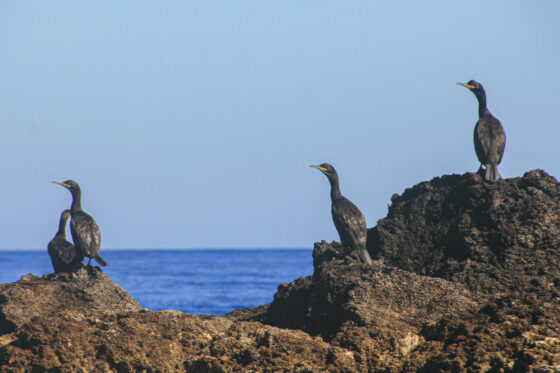 We want the EU to achieve a nature-positive transformation of our energy system, through:
We want the EU to achieve a nature-positive transformation of our energy system, through:
- 🌱A rapid transition to a net-zero emission economy with 100% renewables by 2040: Sufficiency, hence the cut of energy demands across all sectors, efficiency, and transitioning away from fossil fuels to renewable energy rapidly and at unprecedented scale is a precondition if we are to limit global warming to 1.5°C. The EU should unequivocally mark the end for fossil fuels, by introducing legally binding deadlines to phase out any EU use of coal by 2030, fossil gas by 2035 and oil by 2040 at the latest. We therefore ask to push for low impact renewables energy options, with a precautionary approach to new technologies and investments in research, development, and innovation in renewables. Rooftop solar and renewables on already built surfaces offer the possibility to rapidly increase energy production with limited environmental damage. This push should not be achieved at the expense of protecting and restoring ecosystems and biodiversity, but should go hand-in-hand with enhancing and restoring nature.
- 🌱A holistic approach to spatial planning and robust environmental safeguards: We ask to provide a clear framework to balance and resolve conflicts between all current and future uses and to ensure that renewables, grids, storage, and all infrastructure are developed in harmony with nature. We need spatial planning that coordinates the delivery of renewable energy targets all the way to 2050: The planning must include a frontloaded approach to assess and manage the ecological impacts of all development aspects that account for displacement of activities while seeking to optimise space through co-location with other human activities. Marine spatial planning should aim at placing healthy seas at its core.
- 🌱A phase-out of all environmentally harmful incentives and subsidies, inter alia for burning biomass, by 2030 in conformity with the Global Biodiversity Framework’s target: A huge part of EU’s environmentally harmful subsidies are still found in the energy sector, preventing its real transformation. The EU’s renewable energy policy for instance is driving large-scale habitat destruction. To achieve a fully circular economy, we ask to end, amongst others, financial support and other incentives for bioenergy made from agricultural crops and from forest biomass. Instead, we need to aim for full circularity of all material use, with at first a reduction in all material needs, then a reuse and lastly a clean recycling, to replace the linear growth paradigm that the EU’s policy framework is currently fostering.
- 🌱Active policies to maximise synergies between climate and nature: There are many solutions to both the climate and nature crises. Nature-based solutions must be used to address climate change, disaster risk, water security, biodiversity loss, and human health. We ask to start legislative initiatives on those solutions not yet sufficiently addressed at EU-level. Amongst others, EU regulation to reduce light pollution is needed, especially in cities and commercial areas, to favour wildlife and nature’s balance as well as reducing energy. Then, the EU should push for a reduction of roads and infrastructures (e.g. ports and airports), to reduce traffic, land-use, and the impact on climate change. Finally, the re-naturalisation of cities and the promotion of urban biodiversity, including biodiversity friendly design of EU cities, should be at the hearth of public policies as they provide numerous benefits for both human health and the environment, including improving air and water quality, reducing the risk of heat-waves and heat-related illnesses, and improving mental and physical health.
 We want the EU to achieve a transformation to a sustainable food and land-use system, through:
We want the EU to achieve a transformation to a sustainable food and land-use system, through:
- 🌱A robust sustainable food system policy: While there are several incentives and policies impacting the EU’s food production and consumption, often in an uncoordinated and contradictory way, there is no overall sustainable food policy. We ask for a strong EU policy to re-orient both the production and consumption of food to bring them in line with planetary boundaries. This means legislating to drive a reduction in meat and dairy, with also reducing livestock densities, and in fish and seafood, to overall shift to plant-based diets, also for health and climate reasons. Furthermore, to legislate to reduce food waste, and to stop burning food. And finally, setting standards for public authorities and companies with mandatory procurement rules for healthy diets, including nutritional targets for reduction of animal proteins, sugar, fat, and salt intake. More generally, the EU must ensure that its environmental standards are applied across the full supply chain.
- 🌱An overhaul of the EU’s agricultural and fisheries subsidies system. We ask to fundamentally reform the EU’s Common Agricultural and Fisheries Policies, to remove all subsidies leading to intensification and specialisation, and to end all untargeted and environmentally harmful subsidies. This includes the elimination of direct payments and coupled support under the Common Agricultural Policy. Instead, the EU must create adequate incentives needed for the transformation to nature-friendly agriculture and fishery.
- 🌱Robust legislation to bring back biodiversity in productive sea, farmland and forest ecosystems: To address the nature and climate crises, we must tackle the drivers identified by the science. We ask to ensure that there is a set of effective legislations, policies, and incentives to bring back biodiversity into productive farmlands, production forests, fishing grounds and aquaculture. In agricultural land, this means putting in place and enforcing a legal obligation to maintain and restore at least 10% of landscape features and non-productive areas, including fallows on farms. At sea, this means following an ecosystem-based approach and transparent fisheries management, and developing fishing practices that do not harm biodiversity (i.e., zero bycatch) and do not impact the carbon sequestration capacity of our ocean. In the field of forestry, it means the implementation of agroecological and close-to-nature forestry practices, amongst others.
- 🌱Effective legislation against different kinds of pollution: We ask to present, implement, and enforce robust legislation to rapidly drive down pollution from pesticides, nutrients, and plastics in the agricultural and marine environment. This includes strong targets aiming to minimise their use enshrined in the EU legislation, stricter pre-approvals, banning the sale in and outside the EU, and adopting an effective indicator and monitoring framework. In this context, besides monitoring and enforcing a ban of lead shot use in wetlands, we call for a full ban of lead in hunting and sport shooting ammunition and in fishing, to ensure that this neurotoxin is not poisoning wildlife and entering the human food chain. This is not only in the interest of nature, but also for human health. Also, banning greenwashing through regulation of advertisement is a helpful tool.
 We want the EU to focus on investing in a just transition, through:
We want the EU to focus on investing in a just transition, through:
- 🌱The creation of a huge nature restoration fund: To support large-scale nature restoration and back the new Nature Restoration Law, we ask to set-up a dedicated nature restoration fund. This is crucial to ensure the effective and timely scaling-up of nature restoration across Europe. This fund needs to be coherently integrated into the EU’s funding structure. It must be needs-based, ring-fenced and result-oriented. For effective results, it needs to be (co-)managed by nature authorities and would be opened to stakeholders doing large-scale nature restoration.
- 🌱More investments in science for nature conservation: Scientific understanding is crucial for addressing the environmental challenges we face today. We ask for at least €50 billion per year to be invested in nature conservation in order to comply with nature conservation laws like the Birds and Habitats Directives, and the objectives of the Biodiversity Strategy 2030. Without understanding the complex ecological systems that sustain life on our planet, we cannot develop effective strategies to protect them. Investing in science for nature conservation is not only a moral imperative but also an investment in our own survival and well-being.
- 🌱Targeted investments to support the just transformation of key sectors: We ask to set up a non-permanent financial support to help sectors such as agriculture, forestry and fisheries which are key when mainstreaming solutions against the nature and climate crises, to become truly sustainable. Linked to inclusive policies and green strings, this should create jobs and livelihoods, and benefit local communities. Besides the focus on key sectors, major investments in housing renovation, with nature-friendly design, should be rolled-out, focusing on the poorest communities.
- 🌱A system of payments for ecosystem services in the future agricultural policy: To reward landowners and managers respectively for delivering public goods and services that are not directly paid by the market, such as biodiversity conservation, carbon sink restoration, and water retention, we ask for the deployment of a permanent system of payments for ecosystem services to compensate farmers and foresters for sustainable farming and forestry practices that go beyond the legal baseline. This would be for farmers or foresters doing genuine management of peatland, amongst others, and would also help to revitalize rural areas.
- 🌱Strong conditionalities for all EU funds to support the transformation to sustainability: Similar to the point we made about keeping back funding in cases of severe issues with fundamental values, we ask to put in place concrete and operational conditionalities to all EU funds, especially those mentioned here. These conditionalities must ensure EU funding is not environmentally harmful but serves the transformation to a sustainable and fair Europe. In addition, the conditionalities must ensure that the funding is linked to respecting the rule of law, and not used to fund practices that breach EU legislations on water, nature, or climate.
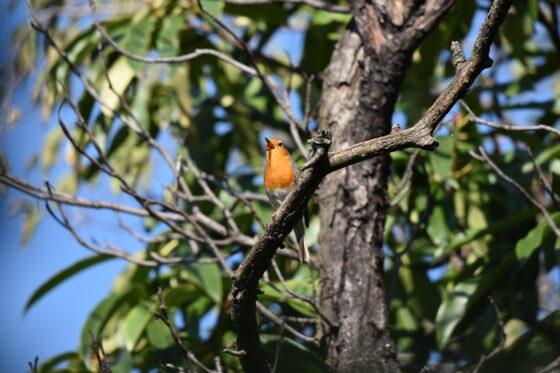 We want the EU to strengthen justice and democracy, through:
We want the EU to strengthen justice and democracy, through:
- 🌱A ramp-up of the enforcement of EU law. We ask to show zero tolerance to breaking EU law at all levels, including through national governments, and to react with timely infringement procedures. To improve the situation, a whole array of improvements are needed, from a tenfold increase in staffing of the relevant services to a fully transparent disclosure of all infringement letters. Overall, a more effective Commission structure is needed to handle infringements, with clear political commitment and responsibilities, and dedicated infringement units. Additionally, we ask the EU to improve their fight on environmental crimes, including wildlife crimes and the illegal killing of birds, with fines having a deterrent appeal. And finally, the EU must improve the effectiveness of environmental liability, to make the polluters pay.
- 🌱A push for fully democratic and science based law-making: We ask to curb the power of private interest lobbies by regulating lobbying. To effectively fight all corruption, the EU must put in place strict rules against conflicts of interests, to inter alia avoid those voting on subsidy polices they directly profit from. Undue influence also needs to be limited by more effective EU regulation against revolving doors. For the sake of keeping citizen trust and Member States not hiding behind Brussels “bureaucracy”, the EU also needs to make opaque law-making and negotiating processes of all institutions fully transparent – this holds particularly for the Council and for trilogue meetings. We also need governance mechanisms that allow decisions to be made based on the best available scientific knowledge.
- 🌱Creating governance structures that deliver on the transformational change: The last years have shown that a governance structure that moves from sectoral approaches such as agriculture, energy, or fisheries, to a structure solving problems such as the nature, climate or social crises, is crucial. While there were slight improvements within the Commission, with a dedicated Vice-President for the European Green Deal, and better cooperation on files like the EU Farm to Fork Strategy, those files did not advance accordingly in the European Parliament or Council, where solutions are still often discussed in silos with vested interests. We ask to deeply reform all EU institutions, to reflect the big picture priorities and deliver on a strong European Green Deal follow-up, financing a just transition and on the rule of law.
- 🌱Ensuring and strengthening the space for civil society: Across Europe, the attacks on civil society to limit the crucial role of NGOs as democratic watchdogs are steadily increasing. We ask to launch a high-profile initiative to strengthen civil society and protect NGOs, including by funding to support citizens and organisations. Freedom of expression is to be granted at all levels. The EU must then create the position of an EU civic space coordinator, to act as a first contact point for a rapid-response mechanism. And finally, the EU must act firmly anti-SLAPP (Strategic Lawsuits Against Public Participation).
- 🌱Aiming at the right to a healthy environment: As a fundamental principle, the right to a healthy environment should be included in the Charter of Fundamental Rights of the European Union, as recognised by the UNHCR resolution of 8 October 2021, in order to ensure every citizen access to a safe, clean, healthy and sustainable environment in the EU.




